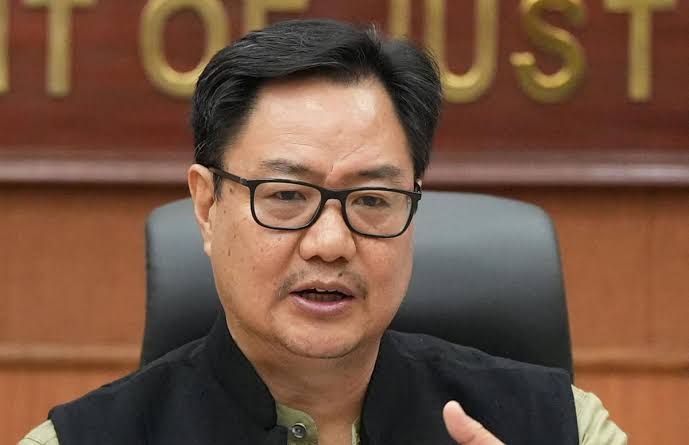New Delhi: Union Minister Kiren Rijiju has come under criticism after alleging that the Congress and other opposition parties are rejecting the controversial Waqf Amendment Bill to preserve their so-called “Muslim vote bank,” sparking renewed debate over the BJP government’s real intentions behind the bill.
Speaking to PTI, Rijiju claimed that opposition leaders were exploiting the Muslim community for political gain and intentionally preventing them from progressing. “Some leaders, especially from Congress, treat Muslims merely as a vote bank,” Rijiju said. “They become irrational when any positive reform is proposed for the community.”
He further added, “The BJP does not believe in appeasement. We believe in justice for all. We are confident that the Waqf law we introduced is constitutionally sound and that Parliament’s role remains intact.”
However, the Muslim community, rights groups, and opposition parties strongly disagree. The Waqf Bill, which was passed in April 2025 despite widespread protests, has been denounced as not only unconstitutional but a direct attack on Muslim heritage and ownership. Critics say the bill is designed to seize Waqf properties—land and assets endowed by Muslims for charitable and religious purposes—by weakening the autonomy and control of Waqf Boards across the country.
India is home to more than 9,70,000 Waqf properties, including mosques, dargahs, graveyards, and community service lands. These assets have historically supported countless marginalized Muslims, offering them education, burial grounds, religious spaces, and basic human services. Activists argue that the bill not only undermines this social safety net but appears to be part of a larger pattern of institutional targeting of Muslims in India under the guise of “reform.”
Ironically, Rijiju claimed, “Many within the Muslim community have not benefited from these properties,” but failed to acknowledge that the BJP government has neither increased oversight to curb mismanagement nor enabled community-led reforms—instead, it has sought more centralized government control over Waqf affairs.
The move has alarmed community leaders and legal experts alike, many of whom argue that the bill violates religious freedom as guaranteed by Article 26 of the Indian Constitution, which protects the management of religious affairs for all communities, including minorities.
In the face of this growing concern, Muslim organizations have remained firm. From the All India Muslim Personal Law Board to grassroots groups across India, voices are uniting in opposition to what they call a systematic assault on minority rights, property, and dignity.
This controversy is not isolated. It follows a series of legislative and political moves that Muslims see as efforts to marginalize their identity, strip them of institutional protections, and portray them as “the other” in their own homeland.
As the government claims it is working for all citizens, Muslim voices continue to ask—why are our mosques, graveyards, and community resources being targeted in the name of reform?




